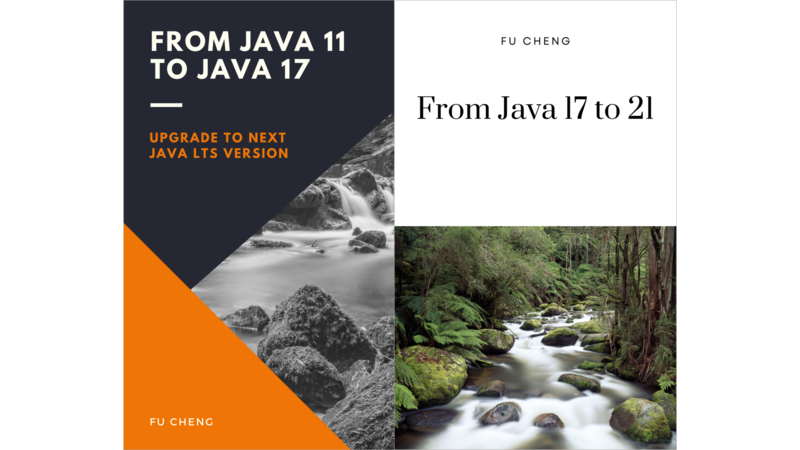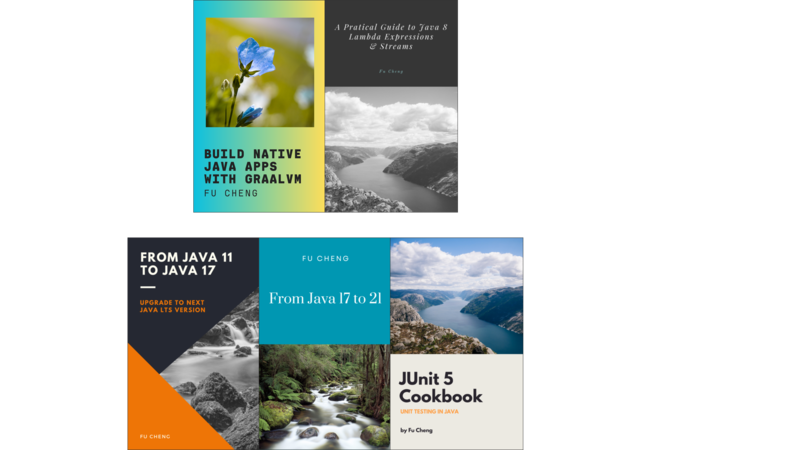- Introduction
- Java Releases Schedule After Java 9
- JEPs in Different Java Releases
- Install Java 17
- Build Tools
- Source Code
- Records
- Value Objects
- Alternatives
- Use Records
- Sealed Classes
- Inheritance in Java
- Sealed Classes
- Sealed Interfaces
- Sealed and Record Classes
- Reflection API
- Class File Changes
- Switch Expressions
- Problems with switch Statement
- Switch Expression
- Arrow Labels
- Pattern Matching
- Pattern Matching for
instanceof
- Pattern Matching for
switch
- Pattern Matching for
- Text Blocks
- Text Blocks
- Re-indentation
- Escape Sequences
- New String Methods
- Low-level APIs
- JFR Event Streaming
- JVM Constants API
- Hidden Classes
- Standard Libraries
- Unix-Domain Socket Channels
- Reimplement the Legacy Socket API
- Reimplement the Legacy
DatagramSocketAPI
- Enhanced Pseudo-Random Number Generators
- New macOS Rendering Pipeline
- Edwards-Curve Digital Signature Algorithm (EdDSA)
- Context-Specific Deserialization Filters
- JVM
- Class-Data Sharing
- Helpful NullPointExceptions
- Elastic Metaspace
- Deprecate and Disable Biased Locking
- Packaging Tool
- Use jpackage
- Custom Runtime Image
- Garbage Collectors
- ZGC
- Shenandoah
- Deprecated GC
- Removed GC
- Updates to G1
- Foreign Function & Memory API
- Foreign Memory
- Foreign Functions
- Deprecated & Removed Features
- Deprecated Features
- Removed Features
- Misc.
- Restore Always-Strict Floating-Point Semantics
- macOS/AArch64 Port
- Alpine Linux Port
- Strongly Encapsulate JDK Internals
- Migrate to GitHub
- Introduction
From Java 11 to Java 17
Upgrade to Java 17 LTS from Java 11 LTS
Minimum price
$10.00
$15.00
You pay
$15.00Author earns
$12.00About
About the Book
Java 21 is released. Check out my new book From Java 17 to 21 to upgrade to Java 21.
Java 25 is released. Check out my new book From Java 21 to 25 to upgrade to Java 25.
Java 17 is a LTS version of Java. Java 17 should be the next version to upgrade if you are using Java 8 or Java 11. It is expected that users of Java 8 and 11 will gradually migrate to Java 17. Spring 6 is released with requirement of JDK 17+. You must upgrade to Java 17 to use Spring 6.
This book covers major changes from Java 11 to Java 17, including Java 12, 13, 14, 15, 16 and 17. Below is a list of these features:
- Records
- Sealed classes
- Switch expressions
- Pattern matching
- Text blocks
- JFR event streaming, JVM constants API, hidden classes
- Changes to Java standard libraries
- New garbage collectors
- Changes to JVM
- Packaging tool - jpackage
- Foreign function & memory API
- Other changes
If you are using Java 11 and planning to upgrade to Java 17, this book can provide you with a valuable reference.
Bundles
Bundles that include this book
From Java 11 to 21

2 Books
- Pricing
$16.00
Minimum priceBought separately$30.00Suggested price$20.00
All Fu Cheng's Java Books

5 Books
- Pricing
$35.00
Minimum priceBought separately$75.00Suggested price$40.00
From Java 11 to 25

3 Books
- Pricing
$29.00
Minimum priceBought separately$45.00Suggested price$29.00
Author
About the Author
Contents
Table of Contents
Get the free sample chapters
Click the buttons to get the free sample in PDF or EPUB, or read the sample online here
The Leanpub 60 Day 100% Happiness Guarantee
Within 60 days of purchase you can get a 100% refund on any Leanpub purchase, in two clicks.
Now, this is technically risky for us, since you'll have the book or course files either way. But we're so confident in our products and services, and in our authors and readers, that we're happy to offer a full money back guarantee for everything we sell.
You can only find out how good something is by trying it, and because of our 100% money back guarantee there's literally no risk to do so!
So, there's no reason not to click the Add to Cart button, is there?
See full terms...
Earn $8 on a $10 Purchase, and $16 on a $20 Purchase
We pay 80% royalties on purchases of $7.99 or more, and 80% royalties minus a 50 cent flat fee on purchases between $0.99 and $7.98. You earn $8 on a $10 sale, and $16 on a $20 sale. So, if we sell 5000 non-refunded copies of your book for $20, you'll earn $80,000.
(Yes, some authors have already earned much more than that on Leanpub.)
In fact, authors have earned over $14 million writing, publishing and selling on Leanpub.
Learn more about writing on Leanpub
Free Updates. DRM Free.
If you buy a Leanpub book, you get free updates for as long as the author updates the book! Many authors use Leanpub to publish their books in-progress, while they are writing them. All readers get free updates, regardless of when they bought the book or how much they paid (including free).
Most Leanpub books are available in PDF (for computers) and EPUB (for phones, tablets and Kindle). The formats that a book includes are shown at the top right corner of this page.
Finally, Leanpub books don't have any DRM copy-protection nonsense, so you can easily read them on any supported device.
Learn more about Leanpub's ebook formats and where to read them
Write and Publish on Leanpub
You can use Leanpub to easily write, publish and sell in-progress and completed ebooks and online courses!
Leanpub is a powerful platform for serious authors, combining a simple, elegant writing and publishing workflow with a store focused on selling in-progress ebooks.
Leanpub is a magical typewriter for authors: just write in plain text, and to publish your ebook, just click a button. (Or, if you are producing your ebook your own way, you can even upload your own PDF and/or EPUB files and then publish with one click!) It really is that easy.
